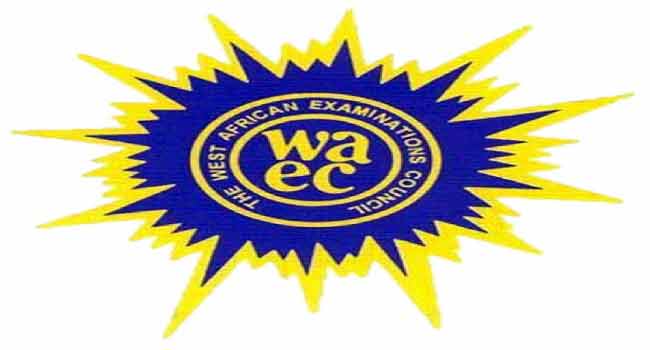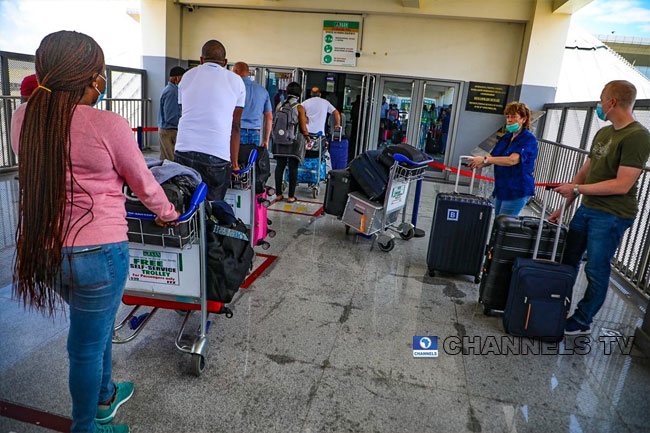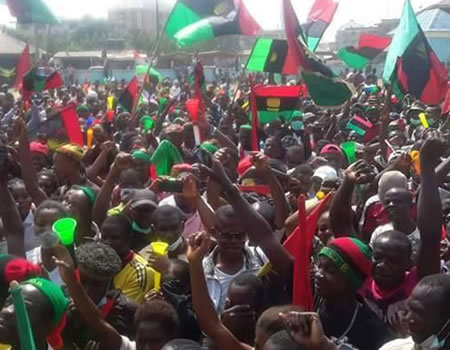Mixed reactions have continued to trail the comment made by the President, Major General Muhammadu Buhari (retd), on the detained leader of the Indigenous People of Biafra, Nnamdi Kanu, on Friday. The PUNCH reported that Buhari, who was on a two-day official visit to Ebonyi State, on Friday, said it was only the court that would determine Kanu’s release, explaining that it was not within his power to do so. This was after the president met with South-East leaders; the apex Igbo socio-cultural group, Ohanaeze Ndigbo, the leadership of the Christian Association of Nigeria (South-East zone) and traditional rulers, who begged him to temper justice with mercy and release the Biafra agitator unconditionally. In its reaction, Ohanaeze Ndigbo Worldwide accused Buhari of playing the script of the Northern Elders Forum and the Arewa Consultative Forum on Kanu. The Chidi Ibeh-led Ohanaeze Ndigbo stated this on Saturday, in an interview with Sunday PUNCH. Its Secretary-General, Okechukwu Isiguzoro, said, “It is not surprising that the President, Major General Muhammadu Buhari (retd), is following the advice of certain quarters in the country, especially the Northern Elders Forum and the Arewa Consultative Forum. “Ohanaeze Ndigbo Worldwide accuses the NEF and the ACF of ill-teleguiding Mr President on the need to release Nnamdi Kanu. We are fully aware that our revered elder statesman, Mbazulike Amaechi, a former minister, led other prominent Igbo leaders to beg Buhari to intervene on Kanu’s release.” A presidential aspirant on the platform of the Peoples Democratic Party, Sam Ohuabunwa, stated that Buhari’s strong belief had helped make Kanu’s incarceration to linger. Ohuabunwa said, “He said only the court could determine Nnamdi Kanu’s case. Therefore, he (Buhari) is just being consistent with his beliefs and statements. This should tell you the kind of adamant person he is. “So, it’s not a surprise. We have been begging him to liberalise Nigeria and allow the South-East region to have a better role in government and in the security apparatus, even from the beginning of his leadership in Nigeria as a military man (over 20 years now). He didn’t bulge by it. He’s a man whose belief system is strong, and no shouting or wailing can change him. He’s just that kind of person. “South-East leaders should continue to appeal and push. Anybody whose son is justly and unjustly arrested will always go on appealing. So, let us continue to plead with Buhari. Who knows? God may touch his heart someday.” The Alaigbo Development Foundation said the President had never hidden his hatred for Kanu and the entire Igbo tribe. According to the socio-political organisation, Buhari had, since his assumption of office, shown that he didn’t have the region’s interest at heart. The ADF Director of Media and Publicity, Chief Abia Onyike, stated this during a telephone interview with our correspondent on Saturday. He said, “People should forget it when they say Buhari is the father of Nigeria. And what makes you think he feels the problem of the South-East geopolitical zone? “This is a man who continues to show separatist tendencies. Buhari does not have the interest of the Igbos at heart since he assumed office. “I don’t think anybody should be surprised by the President’s comment on Kanu. He has always consistently shown his hatred for Nnamdi Kanu and the Igbos, and those of us at the ADF know this already.” Reacting also to the President’s statement on Kanu, the National Coordinator, South-East for President 2023, Rev Okechukwu Christopher, said, “I’m seeing a determination by Buhari not to release Nnamdi Kanu or forgive or forget any anger he holds against Kanu which he has caused him over the years. But the point is that recently, there was this prerogative of mercy exercised by the President on corruption-prone individuals-Joshua Dariye and others. He should do the same for Kanu. “The President shouldn’t be using the court as an excuse. The Constitution empowers him to pardon prisoners. So, he shouldn’t use the court system as an excuse. “So, if Buhari was able to give clemency to those accused of corruption, what about Nnamdi Kanu? He should hearken to the voices of the public.”














